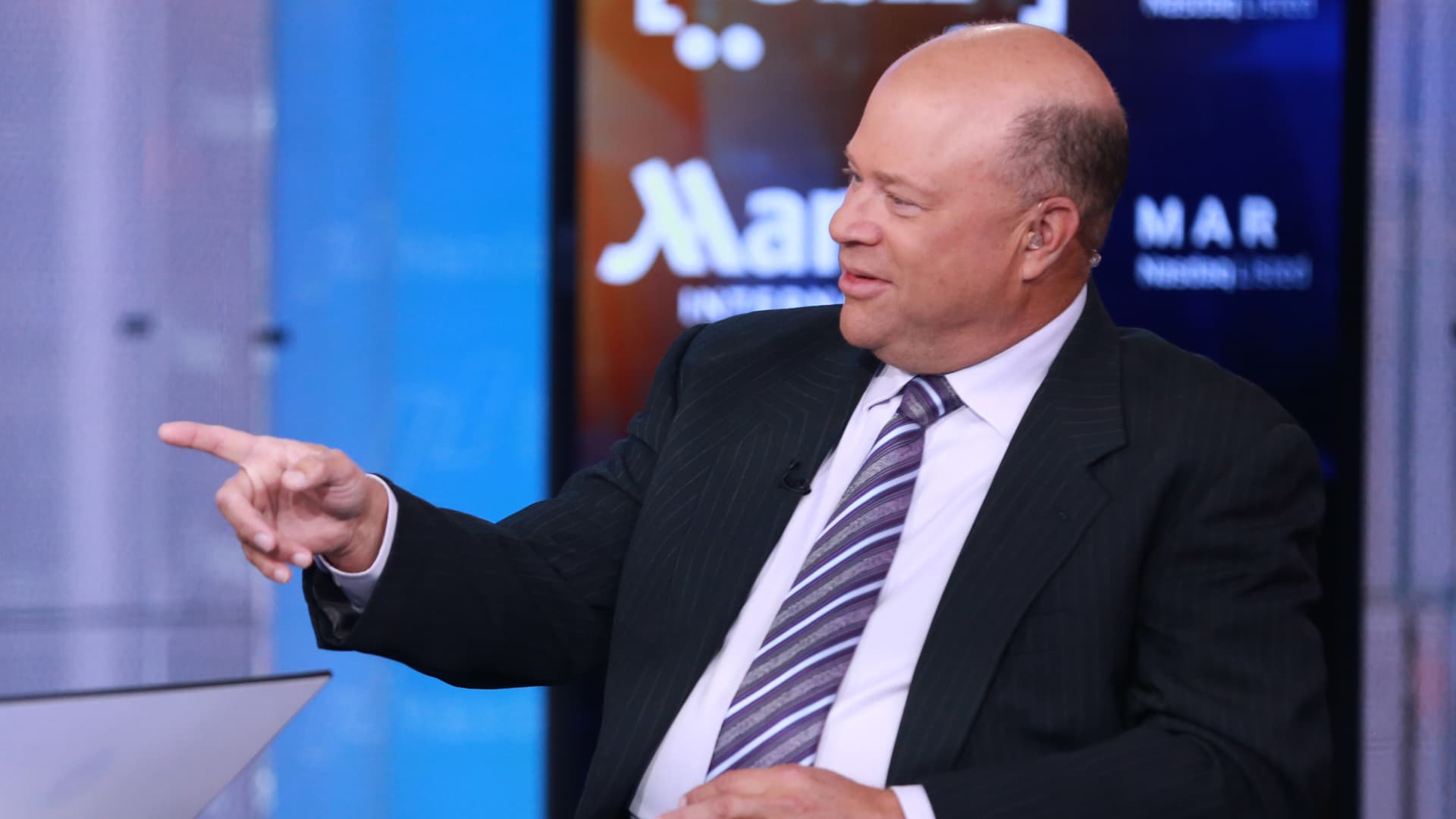Hedge fund billionaire David Tepper trimmed his exposure to Chinese internet stocks in the first quarter as a trade war between the U.S. and China heated up, while adding a big bearish bet against an exchange-traded fund that rejects fossil fuel investments. Tepper, acting through his Appaloosa Management, had gone all in on China in the wake of Beijing’s pledge to boost its economy last fall. Now, he reduced his stakes in Alibaba , PDD and JD.com in the first quarter, according to a new 13F regulatory filing. The hedge fund also slashed its holding in iShares China Large-Cap ETF (FXI) and KraneShares CSI China Internet ETF (KWEB) last quarter. In September 2024, Tepper told CNBC he was buying “everything” tied to China because of Beijing’s vow to provide massive fiscal support to its economy. Back then, the high-profile investor even said he was raising his usual allocation limit and not hedging his big China bet. Appaloosa’s first-quarter moves out of China came before President Donald Trump slapped steep tariffs of more than 100% on China imports into the U.S. in early April, sparking a sell-off in the most prominent Chinese stocks as well as the broader U.S. market. Earlier this week, the U.S. and China agreed to suspend most tariffs on each other’s goods for 90 days in a thawing of trade tensions. Also at the end of the first quarter, Tepper owned put options with a notional value of $2.5 billion against the SPDR S & P 500 Fossil Fuel Reserves Free ETF (SPYX), the filing revealed. The filing didn’t include the put options’ value, strike price or expiration, and Appaloosa could also have exited the position since the end of the first quarter in March. Investors profit from puts when the underlying security falls in prices. The ETF tracks 489 S & P 500 companies that are “fossil fuel free,” or companies that do not own fossil fuel reserves. Its top holdings include many of the Magnificent 7 stocks — Microsoft , Nvidia , Apple , Amazon , Alphabet and Tesla — which means the put options could serve as a hedge against a drop in tech stocks. The fund is about flat on the year, but dropped 7.5% in February and March.





